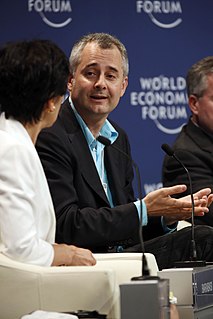A Quote by Seth Klarman
Never stop reading. History doesn't repeat, but it does rhyme.
Related Quotes
This is what rhyme does. In a couplet, the first rhyme is like a question to which the second rhyme is an answer. The first rhyme leaves something in the air, some unanswered business. In most quatrains, space is created between the rhyme that poses the question and the rhyme that gives the answer - it is like a pleasure deferred.
The reason why you do history, and particularly why you do war, is that you want to make sure that in the next war, some lessons were learned. There's a saying: "History doesn't repeat itself, but it does rhyme." Or Ecclesiastes: "What has been will be again. What has been done will be done again." Human nature always superimposes itself - its strength and its frailty over the rush of chaos of ongoing events - and we can perceive patterns and themes and motifs.
A glance at the history of European poetry is enough to inform us that rhyme itself is not indispensable. Latin poetry in the classical age had no use for it, and the kind of Latin poetry that does rhyme - as for instance the medieval Carmina Burana - tends to be somewhat crude stuff in comparison with the classical verse that doesn't.
A glance at the history of European poetry is enough to inform us that rhyme itself is not indispensable. Latin poetry in the classical age had no use for it, and the kind of Latin poetry that does rhyme - as for instance the medieval 'Carmina Burana' - tends to be somewhat crude stuff in comparison with the classical verse that doesn't.

































